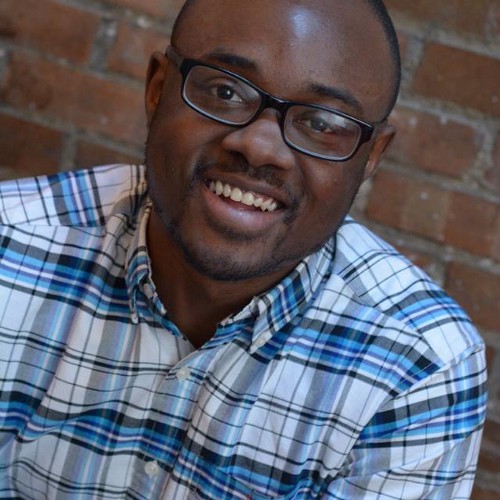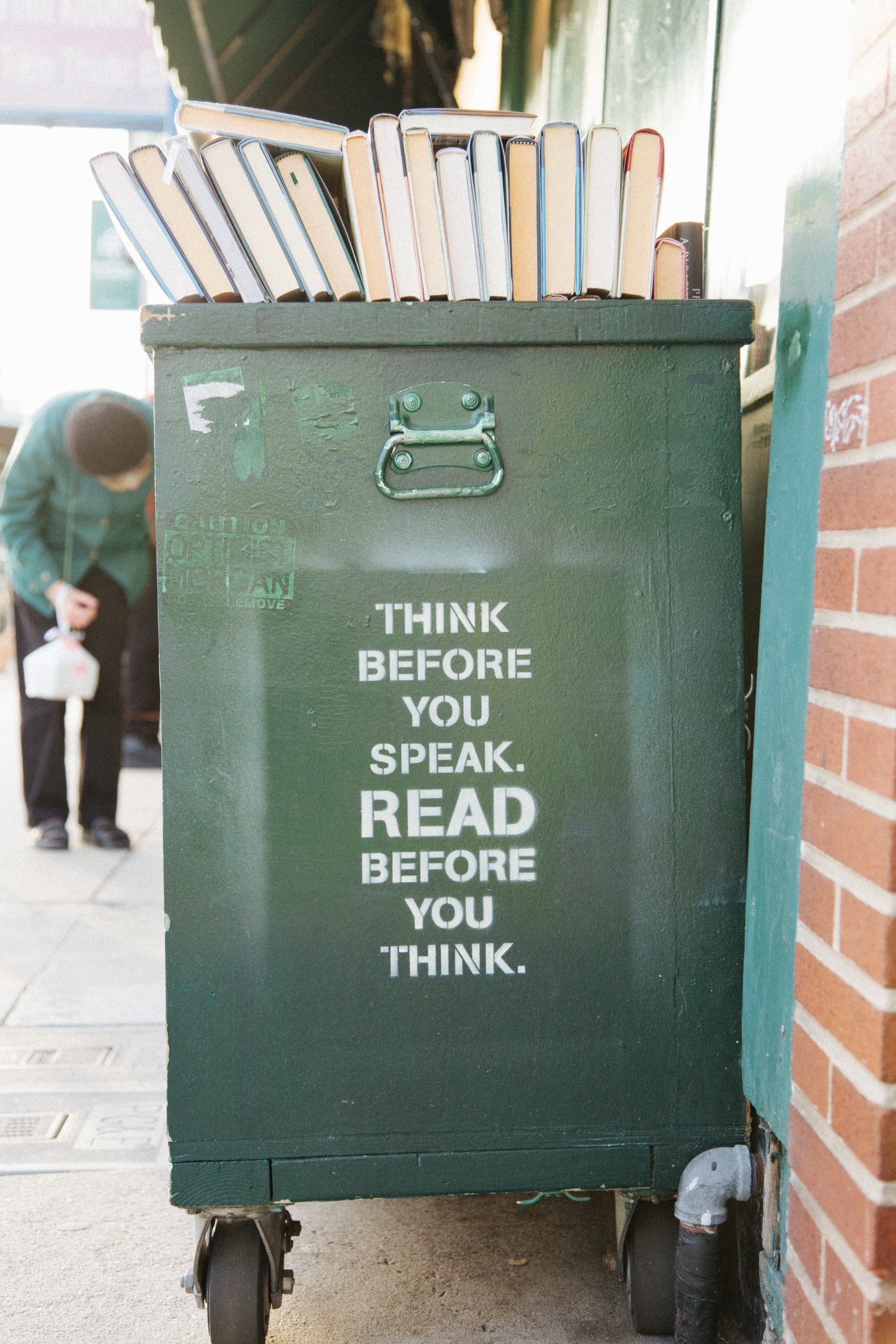For the cost of $10–20 per week (or free in the case of libraries), we could dramatically reduce many of the world’s problems.
This is an imaginary scenario that’d never happen, but if it did, the world would be a much better place.
If every human being read at least one book per week for the duration of their lives, I believe we’d see immeasurable benefits like reductions in crime, less incessant fighting on the internet, increase in economic production, more stable homes, and better human relationships.
Is this just a fanciful idea? Am I overstating the importance of reading?
Maybe, but think about it, if we all read and read widely, the world definitely wouldn’t get worse. Isn’t it plausible that it’d get much much better?
Why (the Right) Books Make You a Better Person
Ignorance is rooted in a lack of knowledge about other people, history, the way the world works, and a number of other skills and insights you can gain from picking up a book.
No, reading books won’t magically make you a genius. Yes, there a wide range of books — some (much) better than others. You probably won’t gain worldly wisdom from reading 50 shades of grey. But if we all read good books, developed the skill of turning the insights we gain from books into action, and improved our ability to learn and digest knowledge while we read more and more, I’d argue we’d see a massive rise in our collective consciousness — something we desperately need.
I’m biased — books changed my life.
After hitting a rock-bottom moment of depression in my life I set out on a path to personal development with books being gateways to that path.
I didn’t just read books like 10 Steps of Leadership — although I did read some of those — I also read books about psychology, persuasion, biology & evolution, philosophy, religion (just for edification, not practice), economics, biographies of influential people, game theory, probability, sales, social skills, you name it.
I can’t say any one book made a profound change on its own, but I find the accumulated knowledge gained has helped me make better decisions, understand the world better, understand other people better, and obviously helped my writing skills.
As I read more, I’m developing the process of reading stuff I don’t necessarily agree with. It’s hard, very hard. But I have dispensed of old ideas and outdated ways of thinking by reading and discovering new evidence. I’m nowhere near infallible — and my ideology is painted with experience and circumstance — but I feel like I’ve gotten, say, 10 percent more rational. That’d have an amazing impact if we all sought to do the same.
The Power of Combined Knowledge
Imagine a world where everyone read one book per week while doing the aforementioned process of improving their thinking and challenging their own views while reading those books.
52 books in a year. In a decade that would mean that every person would have the knowledge from 500 books along with the experience of rigorously testing their view of the world.
This is idealistic, yes, but think of the implications if this happened…
Imagine a world where everyone learned the lessons of history — maybe the same predictable negative patterns would occur less frequently.
Imagine a world where we all had a better understanding of human nature. We’d still fight with each other and place blame, but maybe not so quickly.
What if we all were a little more financially savvy, a bit more emotionally stable, a little less conformist, more open-minded, and intellectually battle-tested as opposed to blindly believing the mental blueprint we were given through upbringing?
The more I learn, the more I realize I don’t know nearly as much as I thought. The more I learn, the more open I am to someone challenging my ideas (it still doesn’t feel good, but I’m more open to it.)
Maybe we’d all follow the path of confirming our own biases and read only to strengthen our assumptions — we’ve seen how the misinterpretation of books can have perilous, perilous consequences like religious texts — but maybe we’d all broaden our perspective. It’s a fun thought experiment to have and I hope it inspires you personally to read more and become a part of the collective who want to better understand the world.
Read, Learn, Adapt, Thrive
The words and teachings of the most successful people to ever walk this earth are readily available to us, yet most of us ignore them. The secrets to success are all hidden in books. The majority of us use a trial and error approach because our ego tells us that we are so smart that we can come up with the answers all by ourselves, and this is simply not true. Anything you want to do, any emotion you’ve felt, and any situation you’ll possibly experience has already been well, well documented in a book. We’re not that unique.
In the book The Selfish Gene written by evolutionary biologist Richard Dawkins he writes:
“Survival machines that can simulate the future are one jump ahead from survival machines who only learn on the basis of overt trial and error. The trouble with trial is that it takes time and energy, the trouble with overt error is that it is often fatal. Simulation is both safer and faster.”
We can use books to “simulate” the potential outcomes of our actions rather than risking fatality through mere trial and error. We may not be in danger of literal fatality, but there are definitely metaphorical fatalities we are at risk of enduring; Financial fatality, social fatality, and moral fatality are just a few in a list of many pitfalls in life that can be avoided by simulation via the acquisition of knowledge through literature.
Look, nobody is saying you have to become a literature nerd. No one is saying you can’t watch Netflix (a world without Stranger Things is not a world I want to live in.) I’m not one of those people who say you must read or else you’re mediocre.
Some people really don’t like to read (I thought I didn’t like reading for 24 years of my life but that change). Some people can’t read. I get the objections, but this post is for people who’d like to read more.
Who cares how many books the average CEO read? I’m more interested in you — the person like me who struggles through life trying to become a better version of themselves — and what you have to gain from reading more.
You don’t have to read a book a week. Try 30 minutes per day, or every other day, or listen to audiobooks while you drive to work, whatever.
But I will stand by the statement that reading resides on a short list of the most impactful habits you can adopt to live a better life.
Get Your FREE Copy of My Best-Selling Book
Click the link to download a free copy of my Amazon best-selling book here.
Along with your free book, you’ll receive a weekly Monday motivation email to jump start your week + access to exclusive content for subscribers only.
Originally published at medium.com


